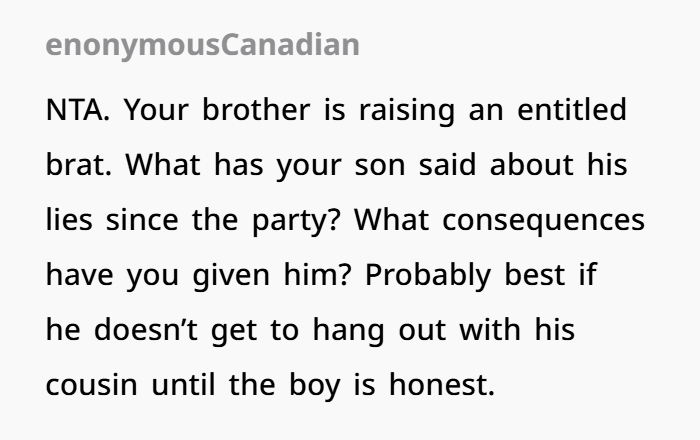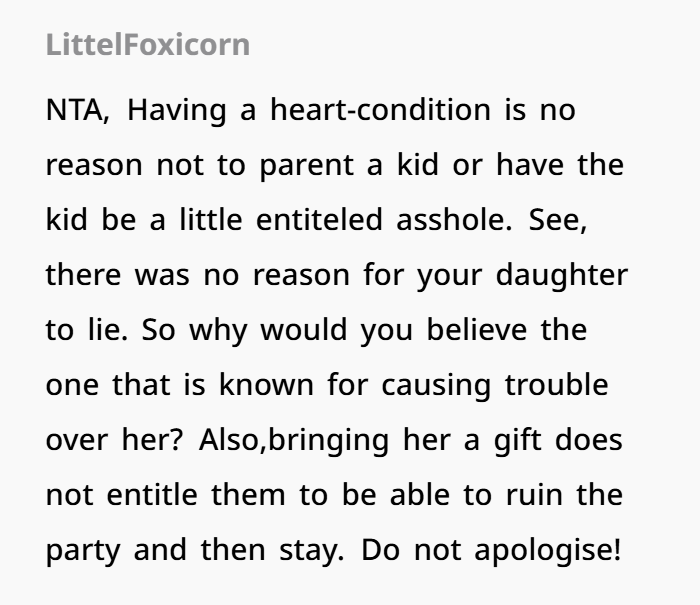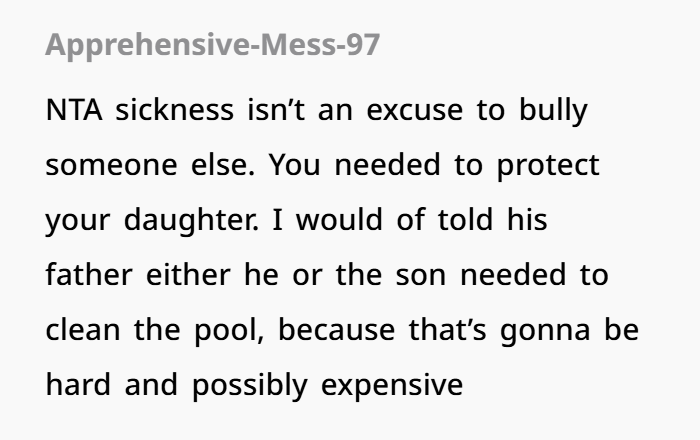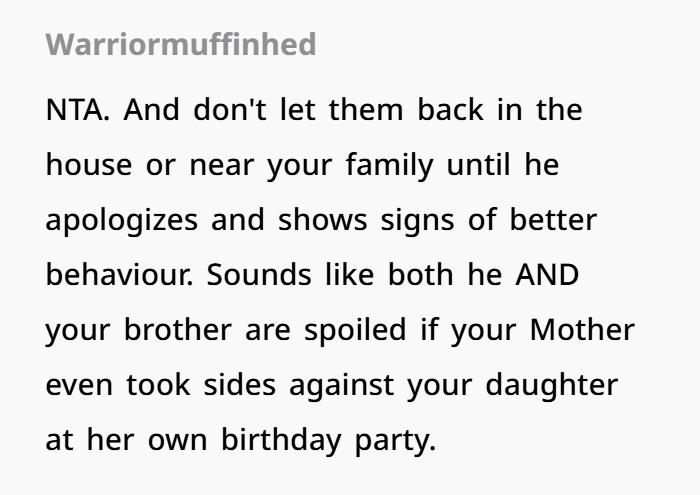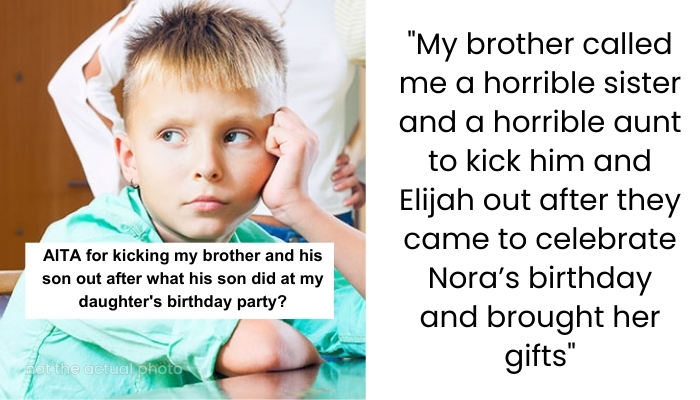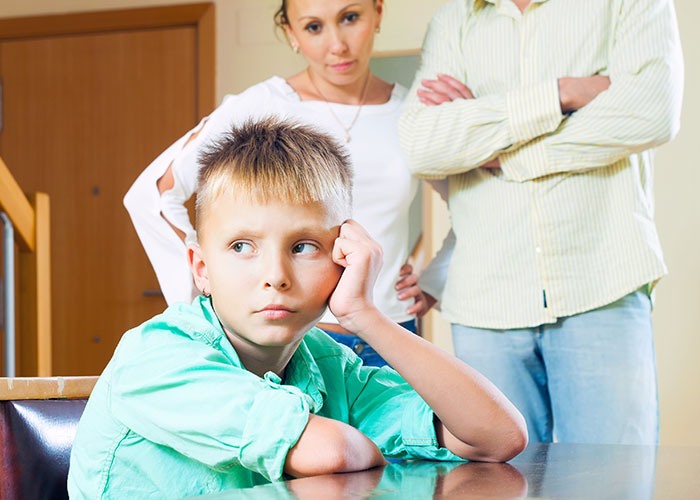Mom Kicks Out Brother And Nephew After Ice Cream Meltdown At Daughter’s Party
Turning sixteen should be a happy moment, full of friends, fun, and sweet memories. But for one teenage girl, her special birthday celebration turned into a day of drama and disappointment.
Instead of enjoying her dessert, the birthday girl’s treat ended up floating in the swimming pool before she even got a bite! The situation became so tense that her mother decided to ask for parenting advice on Reddit, hoping to get help from others who understand the challenges of raising teenagers.
The full story below shares everything that happened during the event, including how the family drama unfolded. Plus, we also feature expert tips from parenting coach Sue Atkins on how to manage child behavior issues during big celebrations and why family counseling can sometimes be the best solution for healing family rifts.
If you are planning a birthday party soon, don’t miss Sue’s important advice on birthday party planning and how to avoid family conflicts on your child’s special day.
Read for more info Reddit
This woman’s daughter was thrilled to celebrate her birthday with homemade ice cream
But the party quickly went downhill when the dessert ended up floating in the pool
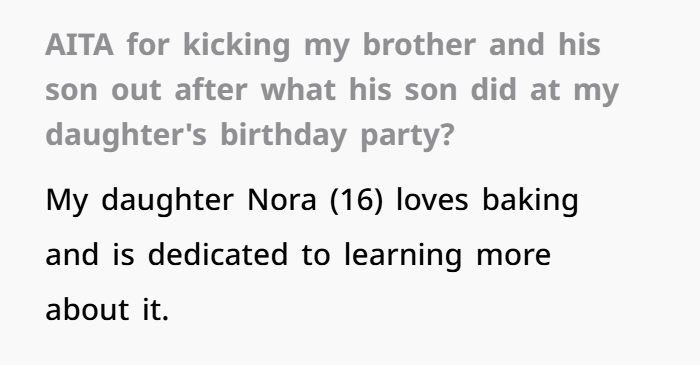
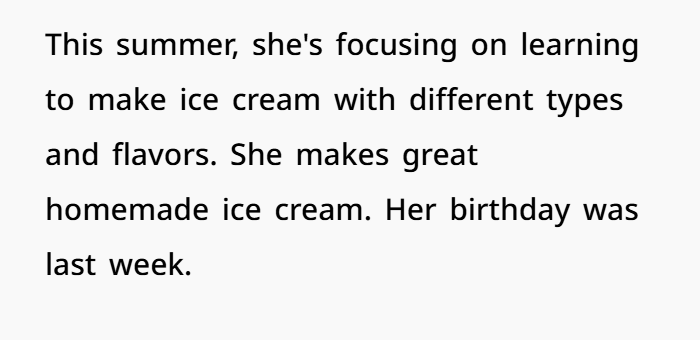

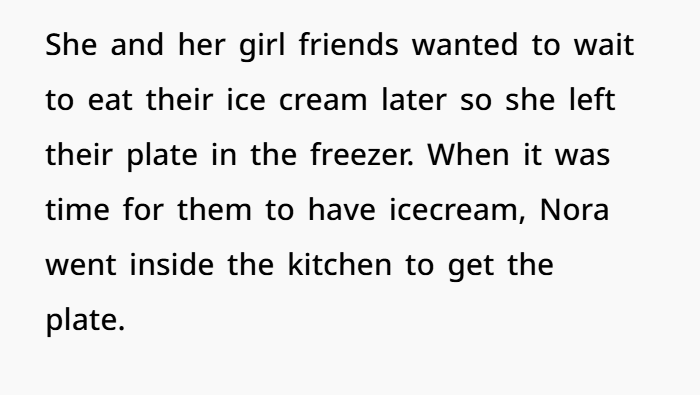
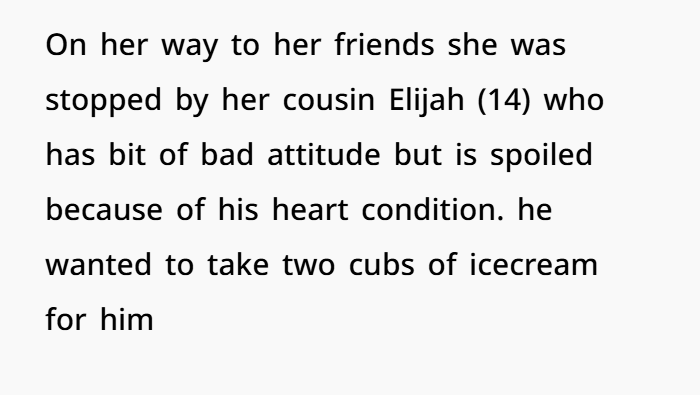
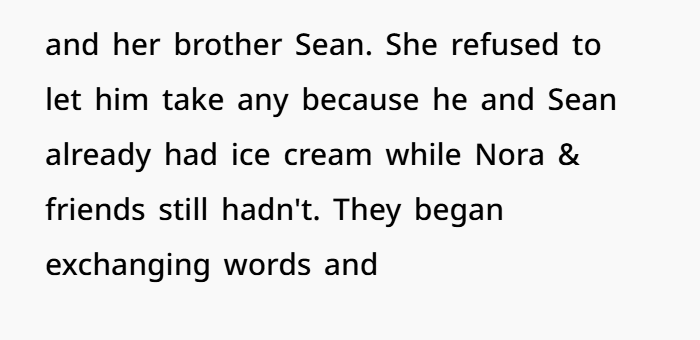
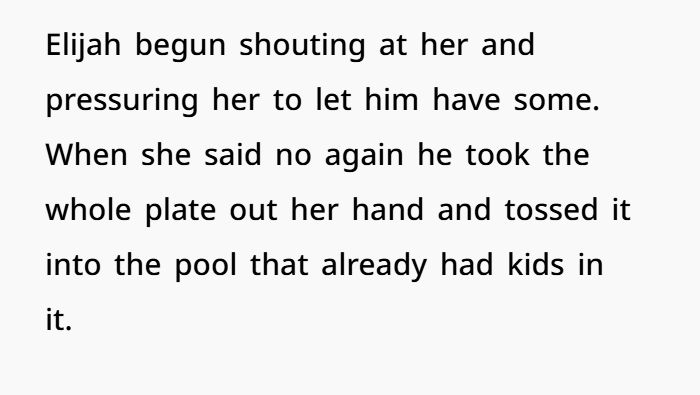
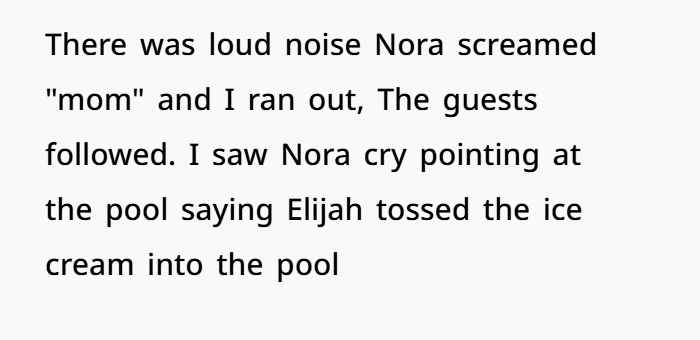
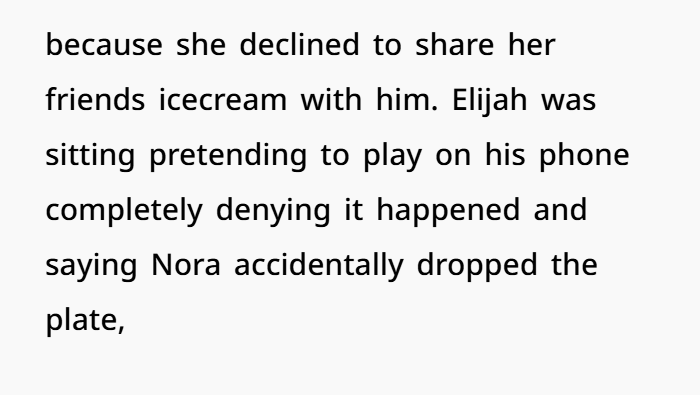
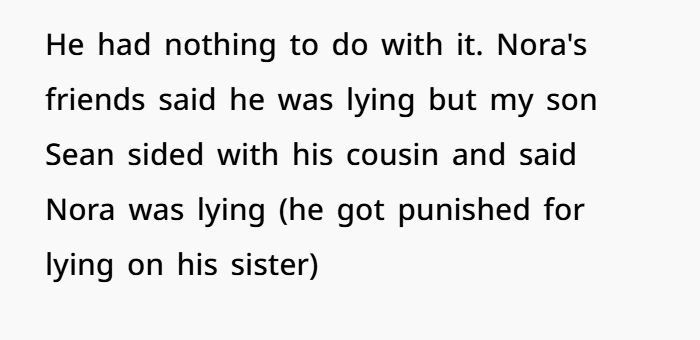
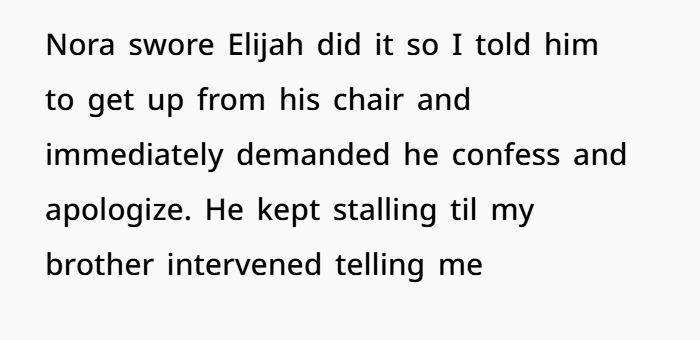
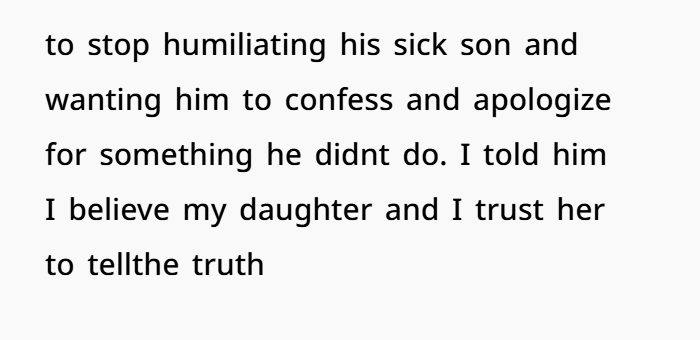
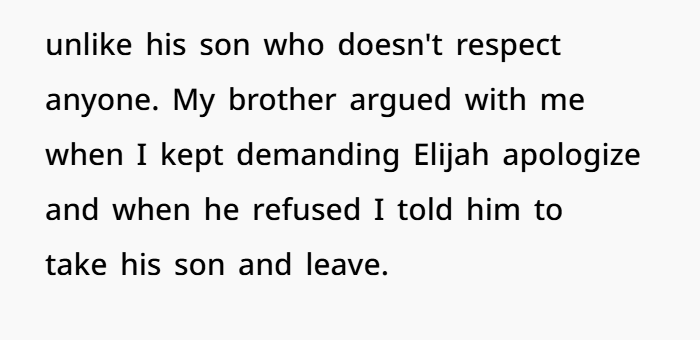
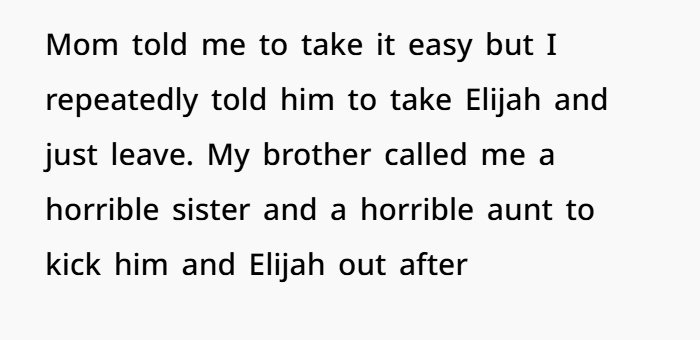
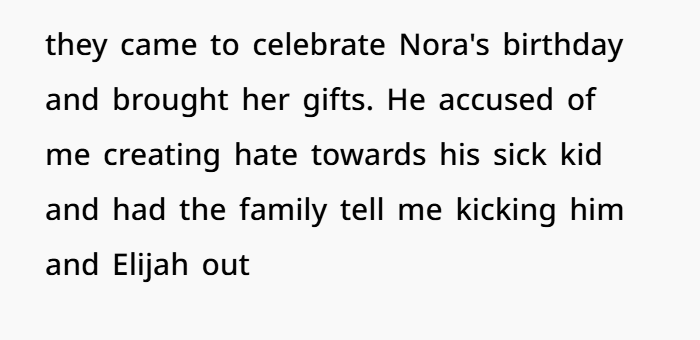
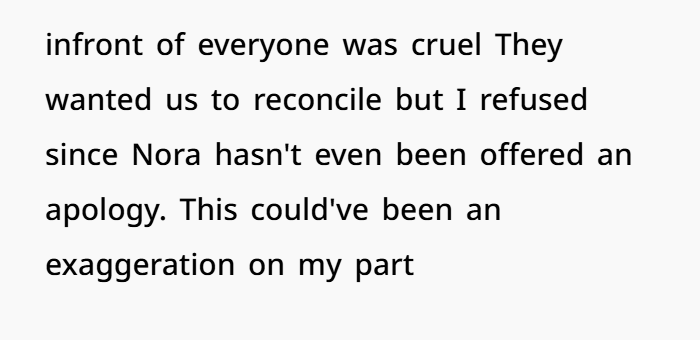
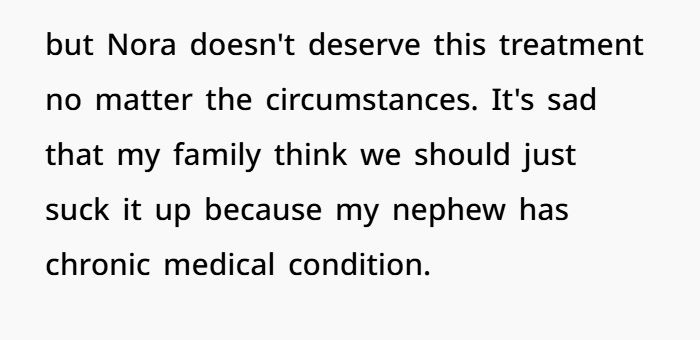
“Cousins often play together like siblings but don’t always have the same emotional glue holding them together”
To better understand this situation, Bored Panda spoke with parenting expert and host of Navigating the Digital Jungle, Sue Atkins. She shared some important insights about why conflicts among cousins are actually very common at family events.
“It’s very common,” Sue explained. “Cousins often behave like siblings during family gatherings, but they don’t always have the same emotional bond. They are raised with different parenting styles, may be at different developmental stages, and sometimes feel like either a ‘guest’ or a ‘host.’ These differences often lead to child behavior issues like jealousy or boundary problems.”
So, how can parents handle these tense moments without causing bigger family issues? Sue had some practical conflict resolution tips.
“This is sensitive territory,” she said. “It’s important to protect your child’s feelings while keeping a good relationship with your family.”
Sue recommends a positive parenting strategy: step in calmly if things escalate. “If a child ruins another’s birthday treat, correct the behavior, not the child. Say something like, ‘At parties, we don’t throw food into the pool,’ instead of blaming the child directly.”
Keeping your voice calm and focusing on teaching family values—rather than criticizing—helps avoid bigger fights, Sue shared.
If the child’s parents are nearby, Sue suggests a respectful approach: “You could say, ‘Would you mind having a quick word with [child’s name]? [Your child] is feeling very upset.’” This gives the other parents a chance to correct their child without starting a family argument.
For more expert advice on handling emotional moments during big celebrations, check out more child psychology and family relationship advice from professionals like Sue Atkins.
We also asked parenting expert and host of Navigating the Digital Jungle, Sue Atkins, for advice on how to set boundaries with relatives during tough family situations.
Sue explained, “Always start with a values-led conversation, not an argument.” She suggested saying something like, ‘We really value kindness and respect in our home. It’s important that [your child] feels safe and supported here. When [cousin] behaves differently, it puts us in a difficult spot.’
Sue shared that focusing on family values moves the conversation away from personal attacks. “You’re not blaming the cousin or criticizing their parenting style. You’re just explaining what your child needs for healthy emotional development.”
If necessary, Sue recommends setting firmer boundaries by limiting unstructured playtime or only planning events where rules and expectations are clear for everyone. This is a smart way to use positive discipline techniques without creating big family fights.
She also stressed the importance of checking in with your child after difficult moments. “Kids learn how to set boundaries by watching their parents,” Sue explained. “When you stand up for your child, you teach them it’s okay to say, ‘That wasn’t fair,’ or ‘I deserve to be treated with respect.’”
For more tips on managing screen time, sibling rivalry, and family conflict resolution, you can listen to Sue’s weekly podcast, Navigating the Digital Jungle.
Some readers wanted more information about the situation
